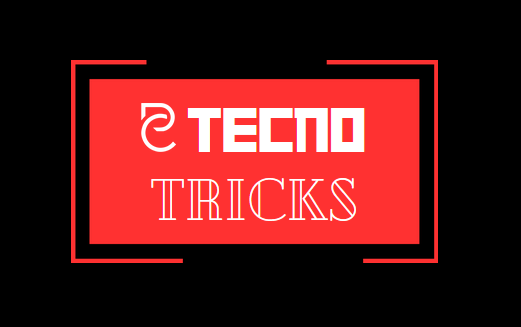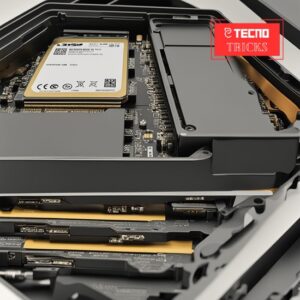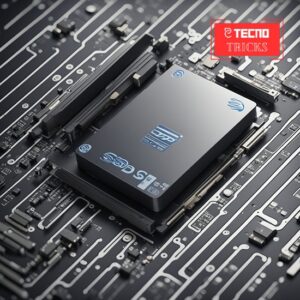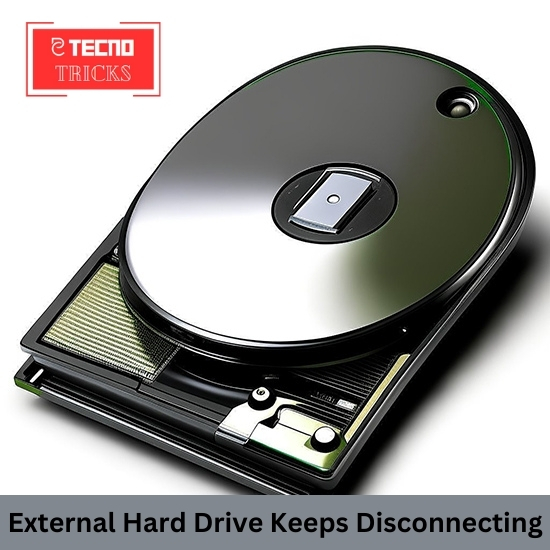Have you ever wondered how many ssd can a pc have? Contrary to popular belief, there’s no one-size-fits-all answer to this question. Many people assume that their PC can only accommodate a single SSD, but the truth is far more nuanced. In this guide, we’ll delve into the intricacies of SSD capacity for PCs, dispel common misconceptions, and empower you to make informed decisions about expanding your storage.
Understanding SSD Capacity for PCs
When it comes to SSD capacity in PCs, there are several factors at play. First and foremost is the type of motherboard you have. Motherboards come with a limited number of SATA and NVMe slots, which dictate how many SSDs you can connect. Additionally, some motherboards support RAID configurations, allowing you to combine multiple SSDs for increased storage and performance.
Factors Affecting SSD Expansion
The number of SSDs your PC can support also depends on the form factor of your SSDs. While most modern PCs are compatible with 2.5-inch SATA SSDs, smaller form factors like M.2 drives may require specific slots on your motherboard. It’s essential to check your motherboard’s specifications to ensure compatibility before investing in additional SSDs.
In addition to hardware limitations, you’ll also need to consider your PC’s power supply and cooling capabilities. Adding multiple SSDs can increase power consumption and generate more heat, so make sure your power supply can handle the extra load and that your case has adequate ventilation.
By understanding these factors and considering your PC’s specifications, you can determine how many ssd can a pc have. In the next section, we’ll explore the performance benefits of installing multiple SSDs in your PC and how to maximize your storage expansion effectively. Stay tuned for expert tips and advice on optimizing your PC’s storage setup!
Despite what many believe, the number of SSDs your PC can accommodate isn’t set in stone. While some may think that their system can only support a single SSD, there are numerous factors that come into play. Let’s dive deeper into understanding the variables that affect SSD expansion in your PC.
Factors Affecting SSD Expansion
Motherboard Compatibility:
Your motherboard plays a crucial role in determining how many ssd can a pc have. Different motherboards come with varying numbers of SATA and NVMe slots, which directly impact the number of SSDs you can connect. Before investing in additional SSDs, it’s essential to check your motherboard’s specifications to ensure compatibility.
Form Factor Considerations:
The form factor of your SSDs also influences how many you can install in your PC. While most modern systems support 2.5-inch SATA SSDs, smaller form factors like M.2 drives may require specific slots on your motherboard. Be sure to check your motherboard’s compatibility with different SSD form factors before making any purchases.
Power Supply and Cooling:
Adding multiple SSDs to your PC can increase power consumption and generate more heat. It’s crucial to ensure that your power supply can handle the extra load and that your PC case has sufficient ventilation to prevent overheating. Failure to consider these factors could lead to performance issues and potential damage to your hardware.
By considering these factors and evaluating your PC’s specifications, you can determine how many SSDs your system can handle. In the next section, we’ll explore the performance benefits of installing multiple SSDs in your PC and provide tips on optimizing your storage setup for maximum efficiency. Stay tuned for expert advice on maximizing your PC’s storage potential!
Contrary to popular belief, the number of SSDs your PC can handle isn’t a limitation but rather an opportunity to boost its performance to new heights. In this section, we’ll explore the undeniable benefits of installing multiple SSDs in your PC and how it can supercharge your system’s speed and responsiveness.
Maximizing PC Performance with Multiple SSDs
Enhanced Speed and Responsiveness:
One of the most significant advantages of adding multiple SSDs to your PC is the dramatic increase in speed and responsiveness. With SSDs, your system can access data much faster than traditional HDDs, resulting in quicker boot times, faster application launches, and seamless multitasking.
Improved Storage Efficiency:
By distributing your workload across multiple SSDs, you can prevent bottlenecks and optimize your storage efficiency. Whether you’re a gamer, content creator, or power user, having multiple SSDs allows you to organize your files and applications more effectively, resulting in smoother overall performance.
Redundancy and Data Security:
Another advantage of having multiple SSDs in your PC is redundancy and enhanced data security. By configuring your SSDs in RAID arrays, you can create backups of your important files and ensure that your data is protected against hardware failures or system crashes.
Contrary to popular belief, the number of SSDs your PC can handle isn’t a limitation but rather an opportunity to boost its performance to new heights. Let’s delve deeper into the benefits of installing multiple SSDs in your PC and how it can revolutionize your computing experience.
Maximizing PC Performance with Multiple SSDs
Enhanced Speed and Responsiveness:
Adding multiple SSDs to your PC results in a significant increase in speed and responsiveness. Unlike traditional HDDs, SSDs enable your system to access data at lightning-fast speeds, leading to quicker boot times, faster application launches, and seamless multitasking. Imagine starting up your PC and launching your favorite games or applications in seconds, with no lag or delay.
Improved Storage Efficiency:
Distributing your workload across multiple SSDs optimizes storage efficiency and prevents bottlenecks. Whether you’re a gamer with a vast library of games, a content creator working with large multimedia files, or a power user running numerous applications simultaneously, having multiple SSDs allows you to organize your data effectively. Say goodbye to cluttered drives and hello to streamlined storage management.
Redundancy and Data Security:
One of the key advantages of having multiple SSDs in your PC is redundancy and enhanced data security. By configuring your SSDs in RAID arrays, you can create backups of your critical files and ensure that your data remains safe in the event of hardware failures or system crashes. With RAID, you have peace of mind knowing that your important data is protected against unforeseen circumstances.
Pros and Cons
While the benefits of adding multiple SSDs to your PC are undeniable, it’s essential to consider the potential drawbacks as well.
Pros:
- Increased speed and responsiveness
- Improved storage efficiency and organization
- Enhanced data redundancy and security with RAID configurations
Cons:
- Higher upfront cost compared to traditional HDDs
- Requires careful planning and configuration, especially with RAID setups
- Limited by the number of available SATA and NVMe slots on your motherboard
Verdict
In conclusion, adding multiple SSDs to your PC isn’t just about increasing storage capacity; it’s about unlocking the full potential of your system and enjoying a seamless computing experience. While there may be some upfront costs and considerations, the benefits far outweigh the drawbacks. Whether you’re a casual user or a power user, investing in multiple SSDs is a worthwhile investment that will transform your PC into a high-performance machine. So why wait? Upgrade your PC today and experience the difference firsthand.
Frequently Asked Questions (FAQs)
1. Can I add multiple SSDs to my PC if I already have one installed? Absolutely! Adding multiple SSDs to your PC is a great way to expand your storage capacity and boost performance. Whether you’re looking to store more files, speed up your system, or enhance data redundancy, adding additional SSDs is a straightforward process.
2. How do I know if my motherboard supports multiple SSDs? The best way to determine if your motherboard supports multiple SSDs is to check its specifications. Look for the number of SATA and NVMe slots available on your motherboard. If you have extra slots, you can add more SSDs to your system. Additionally, some motherboards support RAID configurations, allowing you to combine multiple SSDs for increased storage and performance.
3. What are the benefits of configuring SSDs in RAID arrays? Configuring SSDs in RAID arrays offers several benefits, including enhanced data redundancy and improved performance. RAID configurations allow you to create backups of your important files and protect your data against hardware failures or system crashes. Additionally, RAID setups can improve read and write speeds, making your system even faster and more responsive.
4. Will adding multiple SSDs to my PC increase power consumption? Adding multiple SSDs to your PC may increase power consumption slightly, but the difference is usually negligible. SSDs are more energy-efficient than traditional HDDs, so any increase in power consumption is minimal compared to the performance benefits you’ll gain. Just make sure your power supply can handle the extra load, and you’re good to go.
5. What are some common misconceptions about adding multiple SSDs to a PC? One common misconception is that adding multiple SSDs to a PC is complicated or unnecessary. In reality, adding SSDs is relatively straightforward and can significantly improve your system’s performance and storage capacity. Another misconception is that SSDs are too expensive compared to HDDs. While SSDs may have been more expensive in the past, prices have come down significantly, making them a viable option for most users.
6. Can I mix different types of SSDs in my PC, such as SATA and NVMe? Yes, you can mix different types of SSDs in your PC, such as SATA and NVMe drives. However, it’s essential to consider compatibility and performance factors when doing so. For example, NVMe SSDs offer faster read and write speeds than SATA SSDs, so it’s best to use NVMe drives for your primary storage and SATA drives for secondary storage or backup purposes.
7. Are there any downsides to adding multiple SSDs to my PC? While adding multiple SSDs to your PC offers numerous benefits, there are a few potential downsides to consider. One downside is the upfront cost, as SSDs tend to be more expensive than traditional HDDs. Additionally, configuring RAID setups can be complex and may require some technical expertise. Finally, adding multiple SSDs may require additional cooling to prevent overheating, especially in smaller PC cases.
8. How can I optimize my PC’s storage setup for maximum performance? To optimize your PC’s storage setup for maximum performance, consider using SSDs for your primary storage and HDDs for bulk storage or backups. Additionally, make sure your SSDs are properly configured in RAID arrays, if applicable, to maximize data redundancy and performance. Finally, regularly update your SSD firmware and drivers to ensure optimal performance and compatibility with your system.
9. What should I do if I run out of SATA or NVMe slots on my motherboard? If you run out of SATA or NVMe slots on your motherboard, you still have a few options available. You can use PCIe expansion cards to add additional SATA or NVMe slots to your system. Alternatively, you can consider upgrading to a motherboard with more slots or replacing your existing SSDs with higher-capacity drives to free up slots for future expansion.
10. Can I mix SSDs from different manufacturers in my PC? Yes, you can mix SSDs from different manufacturers in your PC without any issues. SSDs are standardized storage devices, so they should work together seamlessly regardless of the brand. However, it’s essential to ensure compatibility with your motherboard and RAID controller, if applicable, to avoid any compatibility issues.








